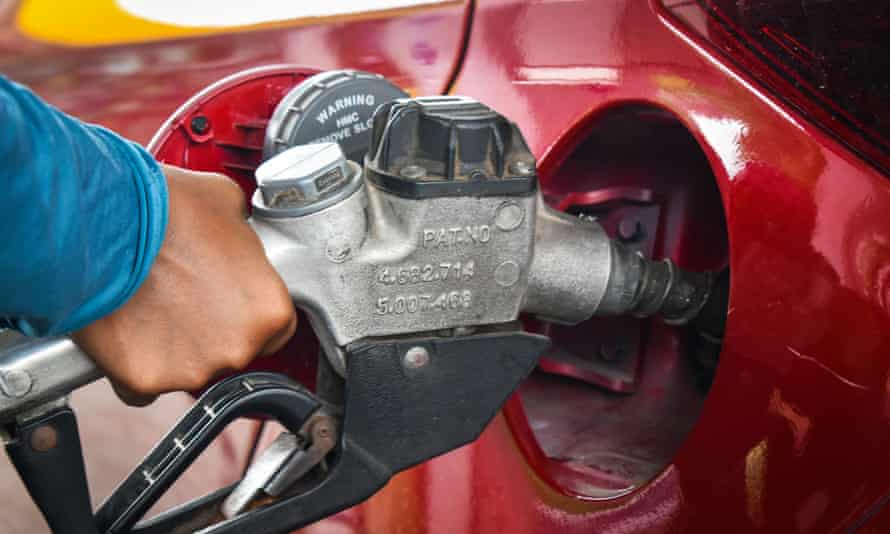Men cause more climate emissions than women, study finds
Both spend similar amounts of money but men use cars much more, Swedish analysis shows

Men’s spending on goods causes 16% more climate-heating emissions than women’s, despite the sum of money being very similar, a study has found.
The biggest difference was men’s spending on petrol and diesel for their cars. The gender differences in emissions have been little studied, the researchers said, and should be recognised in action to beat the climate crisis.
The analysis compared single men and women in Sweden and found that food and holidays caused more than half of all emissions for both men and women. The scientists found that swapping meat and dairy for plant-based foods and switching to train-based holidays, rather than using planes or cars, cut people’s emissions by 40%.
“We think it’s important to take the difference between men and women into account in policy making,” said Annika Carlsson Kanyama, at the research company Ecoloop in Sweden, who led the study.
“The way they spend is very stereotypical – women spend more money on home decoration, health and clothes and men spend more money on fuel for cars, eating out, alcohol and tobacco.”
The research, published in the Journal for Industrial Ecology, did not include fuel for work vehicles such as taxis or plumbers’ vans. Previous research found that in families with one car, men used it more often to go to work with women more likely to use public transport.
Holidays accounted for about a third of emissions for both the men and women. “That is a lot more than I expected,” said Carlsson Kanyama. They used data for single people because figures for individuals living in families were not available.
The changes to diet and holidays to reduce personal emissions were chosen because they do not require extra spending, such as buying an electric car. “These are substantial changes of course, but at least you don’t need to get yourself another job, or borrow money from the bank,” she said. “So it’s something within reach here and now. You just use the same money you have and buy something else.”
A study in 2017 found that the greatest impact individuals can have in fighting climate change is to have one fewer child, followed by not using a car and avoiding flying.
Studies in 2010 and 2012 showed that men spent more on energy and ate more meat than women, both of which cause high emissions. But Carlsson Kanyama said: “I’m surprised more studies have not been done about the gender differences in environmental impact. There are quite clear differences and they are not likely to go away in the near future.”
The EU’s green deal was criticised last week for failing to include the intersection between gender and the environment.
“The climate crisis is one of the key challenges of our time and affects men and women quite differently,” said Leonore Gewessler, Austria’s climate minister. “For instance, the majority of people impacted by energy poverty are women. It is, therefore, crucial to take gender differences into the equation, if we want to develop solutions and a transformation that works for everyone.”
“The European Green Deal policies are, at best, gender-blind and, at worst, widen gender inequalities,” said Nadege Lharaig, at the European Environmental Bureau, which published a report – Why the European Green Deal needs ecofeminism – on Friday.
The spending data in the analysis was from 2012, the latest available. Carlsson Kanyama said it was unlikely to have changed sufficiently today to change the overall conclusions.